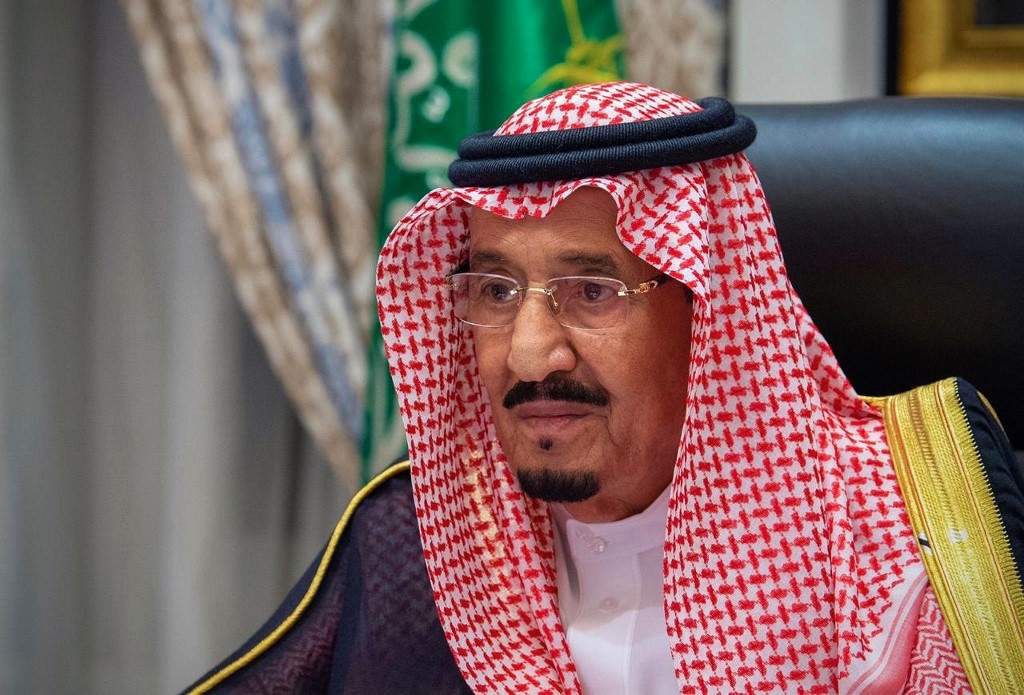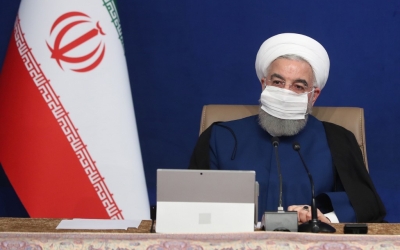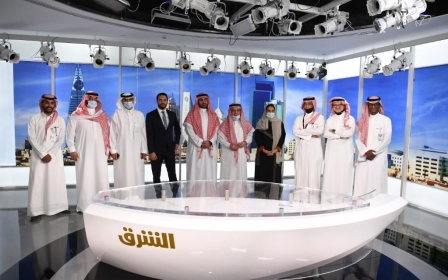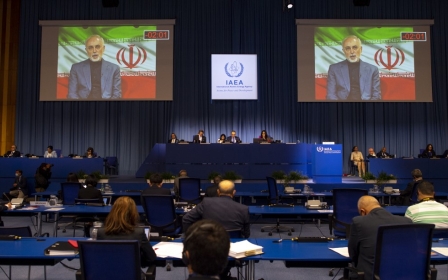Saudi Arabia urges international community to take 'decisive stance' against Iran

Saudi Arabia's King Salman urged the international community to take a "decisive stance" against Iran in order to curb it's ballistic missile and nuclear programmes.
The king made the remarks on Thursday, a day after the UN nuclear watchdog, the International Atomic Energy Agency (IAEA), warned that Iran's stockpile of enriched uranium had risen to more than 12 times the limit permitted.
"The kingdom calls on the international community to take a firm stance towards the Iranian regime," King Salman said in an address to the Shura Council, the country's top advisory body.
"The kingdom stresses the dangers of Iran's regional project, its interference in other countries, its fostering of terrorism, its fanning the flames of sectarianism and calls for a decisive stance from the international community against Iran that guarantees a drastic handling of its efforts to obtain weapons of mass destruction and develop its ballistic missiles programme."
Riyadh and Tehran have been locked in a decades-long struggle for influence across the region, supporting opposing sides in conflicts from Syria to Yemen.
There was no immediate reaction from Iran to the king's remarks. Still, Tehran has repeatedly described Saudi Arabia's statements against it as "baseless allegations" - and denies arming groups in the Middle East.
The Saudi monarch also repeated his long-standing support for a two-state solution to the Israel-Palestine conflict, but did not refer to the US-brokered agreements signed between the United Arab Emirates, Bahrain and Sudan to normalise ties with Israel, part of a strategic realignment against Iran.
Riyadh has quietly acquiesced to the UAE and Bahrain deals, though it has stopped short of endorsing them, and has signalled it is not ready to take such action itself.
The normalisation deals have outraged the Palestinians, who have called them "a stab in the back", pointing out that they reward Israel and allow it to continue its illegal occupation of the West Bank and East Jerusalem as well as its siege of Gaza.
Iranian authorities have also harshly criticised the US-brokered accords, with Ayatollah Ali Khamenei accusing Gulf states of betraying the Muslim world.
A recent survey found that, despite the moves by the UAE and Bahrain, a majority of Arab populations continue to strongly oppose normalisation with Israel.
Sanctions will continue
Tensions have risen in the region since US President Donald Trump pulled Washington out of a landmark nuclear deal with world powers in 2018 and reimposed crippling economic sanctions on the Islamic Republic.
On Tuesday, Iranian President Hassan Rouhani said Tehran would take "any opportunity" offered to lift US sanctions, after Joe Biden promised ahead of his election victory that he would offer the Islamic Republic a "credible path back to diplomacy".
However, Elliot Abrams, the US special representative for Iran, insisted on Thursday that the Trump administration's pressure campaign would continue into a Biden administration, even though the president-elect has pledged to potentially return to the nuclear deal.
The reason being, Abrams cited, was the levels of uranium Iran has enriched since the US left the accord.
"Even if you went back to the [deal] and even if the Iranians were willing to return... this newly enriched uranium, you would not have solved these really fundamental questions of whether Iran is going to be permitted to violate long-term commitments it has made to the world community," Abrams told the Associated Press in an interview at the US Embassy in Abu Dhabi.
Iran's enriched uranium stockpile, which the nuclear accord restricts to under 300 kilograms (660 pounds), now sits at over 2,440 kilograms (5,380 pounds), according to a recent report by UN inspectors.
Experts say it is enough material to make at least two nuclear weapons, though Tehran has repeatedly denied it has any intention to do so.
Middle East Eye propose une couverture et une analyse indépendantes et incomparables du Moyen-Orient, de l’Afrique du Nord et d’autres régions du monde. Pour en savoir plus sur la reprise de ce contenu et les frais qui s’appliquent, veuillez remplir ce formulaire [en anglais]. Pour en savoir plus sur MEE, cliquez ici [en anglais].






